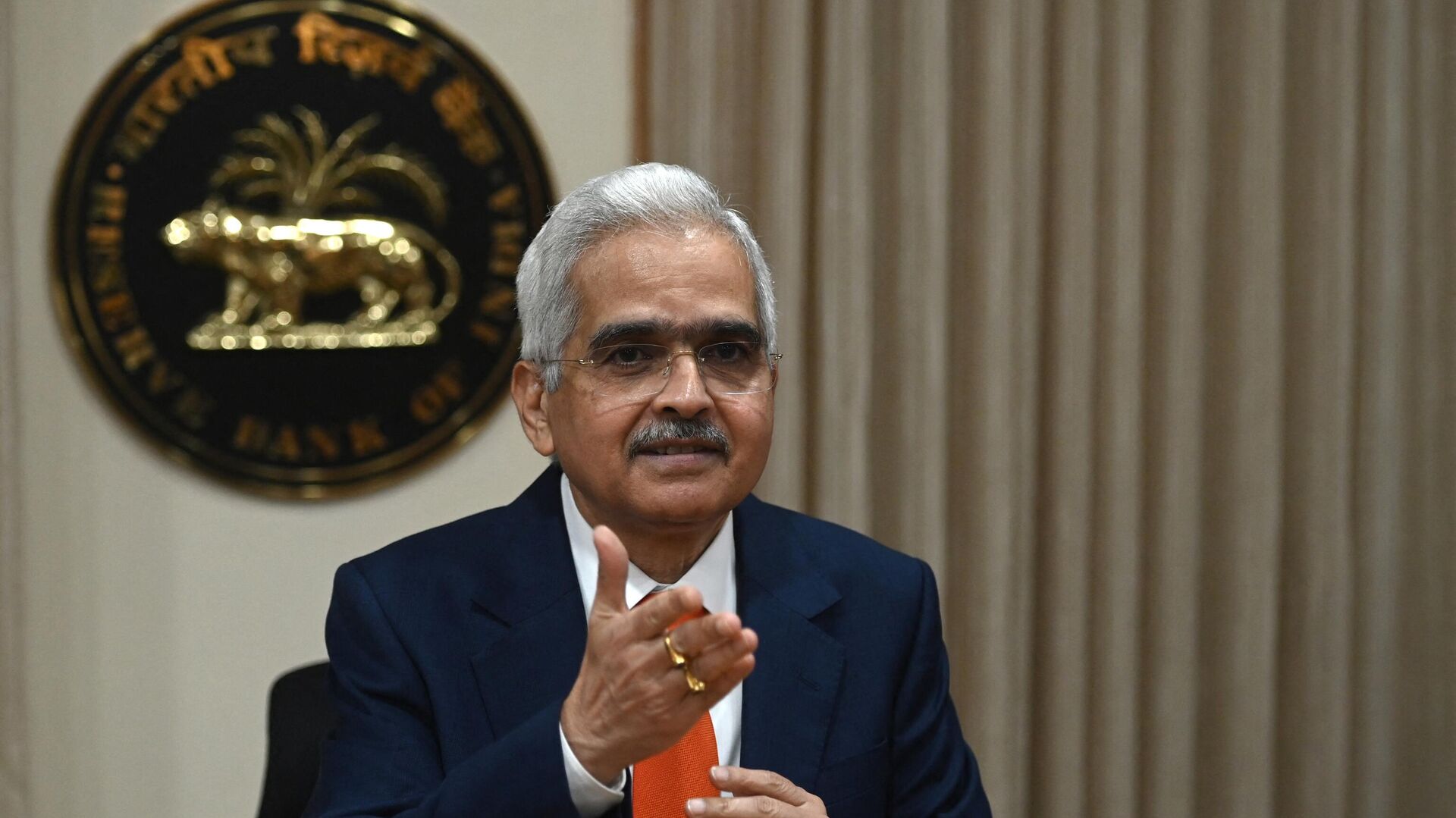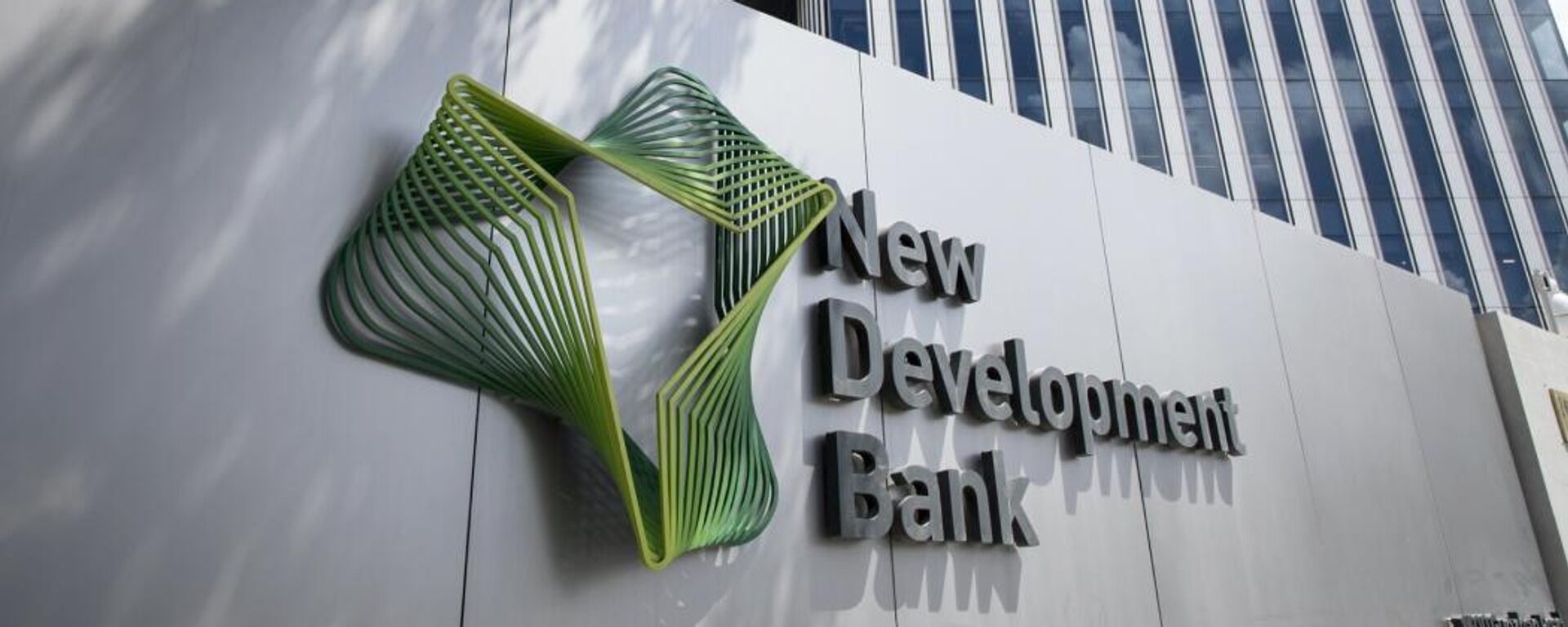https://sputniknews.in/20240618/de-dollarisation-diversifying-forex-reserves-a-priority-for-rbi-7650692.html
De-dollarisation: Diversifying Forex Reserves a 'Priority' for RBI
De-dollarisation: Diversifying Forex Reserves a 'Priority' for RBI
Sputnik India
The diversification of forex reserves in different currencies and financial instruments, such as gold, rank as a “priority” for India in coming years, Reserve Bank of India (RBI) Governor Shaktikanta Das said
2024-06-18T21:08+0530
2024-06-18T21:08+0530
2024-06-18T21:08+0530
business & economy
india
china
reserve bank of india (rbi)
global south
dedollarisation
us hegemony
western sanctions
sanctions
new development bank (ndb)
https://cdn1.img.sputniknews.in/img/07e8/06/12/7652854_0:56:3071:1783_1920x0_80_0_0_86d037a3ab592a2d94c42df4c946b94c.jpg
The diversification of forex reserves in different medium of exchange and financial instruments, such as gold, rank as a "priority" for India in coming years, Reserve Bank of India (RBI) Governor Shaktikanta Das told a conference in Mumbai on Tuesday.According to RBI data, India’s overall exchange reserves stood at nearly $641 billion, as of 3 May, 2024. The reports say that a large chunk of the country's foreign reserves is held in US Dollar (USD).The country's central bank chief said that India's currency holdings were the fourth or the fifth largest in the world.Meanwhile, Das underscored that gold prices have on average increased in the long-run, making it one of the safest bets to deploy the federal forex reserves.Additionally, the CEO noted that the RBI had resumed bying quantities of gold since 2018, in line with the approach to "diversify" the currency holdings.At the same time, Das emphasized that the RBI acquired around 27 tonnes of gold last year.The comments on diversification of forex reserves comes against the backdrop of broader global trend of de-dollarisation. Many analysts attribute the trend to financial disruptions caused by unilateral western measures such as sanctions as well as emergence of multipolarity in global order, spurred by the rise of economies such as China and India.The de-dollarisation trend has further accelerated because of western sanctions against Russia, including the cutting off of its banks from the SWIFT network, in the wake of the special military operation in 2022, according to media reports. Since then, many countries such as India and China have instituted policy measures to encourage trade in local currency.However, while the share of American greenback in central bank holdings has declined over the years, it continues to remain the dominant medium of exchange, according to IMF.
https://sputniknews.in/20240611/dedollarisation-brics-backs-boosting-use-of-local-currencies-expanding-ndb-7587867.html
india
china
global south
Sputnik India
feedback.hindi@sputniknews.com
+74956456601
MIA „Rossiya Segodnya“
2024
Dhairya Maheshwari
https://cdn1.img.sputniknews.in/img/07e6/0c/13/138962_0:0:641:640_100x100_80_0_0_2cb44360dbcdf6d84bf4b299cd045917.jpg
Dhairya Maheshwari
https://cdn1.img.sputniknews.in/img/07e6/0c/13/138962_0:0:641:640_100x100_80_0_0_2cb44360dbcdf6d84bf4b299cd045917.jpg
News
en_IN
Sputnik India
feedback.hindi@sputniknews.com
+74956456601
MIA „Rossiya Segodnya“
Sputnik India
feedback.hindi@sputniknews.com
+74956456601
MIA „Rossiya Segodnya“
Dhairya Maheshwari
https://cdn1.img.sputniknews.in/img/07e6/0c/13/138962_0:0:641:640_100x100_80_0_0_2cb44360dbcdf6d84bf4b299cd045917.jpg
rbi rate hike, rbi governor, russia india trade, russia india news, russia china trade, rupee rouble trade, trade in national currencies, brics dedollarisation, dedollarisation news, brics summit, western sanctions on russia, g7 sanctions on russia
rbi rate hike, rbi governor, russia india trade, russia india news, russia china trade, rupee rouble trade, trade in national currencies, brics dedollarisation, dedollarisation news, brics summit, western sanctions on russia, g7 sanctions on russia
De-dollarisation: Diversifying Forex Reserves a 'Priority' for RBI
Reserve Bank of India (RBI) Governor Shaktikanta Das said that India’s federal regulator aspired to a "model central bank" for Global South.
The diversification of forex reserves in different medium of exchange and financial instruments, such as gold, rank as a "priority" for India in coming years, Reserve Bank of India (RBI) Governor Shaktikanta Das told a conference in Mumbai on Tuesday.
"Our priority is to diversify our deployment of forex reserves in more currencies and different types of assets, particularly gold," Das said during an interaction at 'Leadership Dialogue' organised by Indian channel ET Now.
According to RBI data, India’s overall exchange reserves stood at nearly $641 billion, as of 3 May, 2024. The reports say that a large chunk of the country's foreign reserves is held in US Dollar (USD).
The country's central bank chief said that India's currency holdings were the fourth or the fifth largest in the world.
Meanwhile, Das underscored that
gold prices have on average increased in the long-run, making it one of the safest bets to deploy the federal forex reserves.
"Gold is considered as a permanent hedge that you can have against external uncertainties and challenges," the federal regulator stated.
Additionally, the CEO noted that the RBI had resumed bying quantities of gold since 2018, in line with the approach to "diversify" the currency holdings.
"The gold purchase by the Reserve Bank had stopped for some time. In 2011, around 200 tonnes were acquired from the International Monetary Fund (IMF)," he highlighted.
At the same time, Das emphasized that the RBI acquired around 27 tonnes of gold last year.
The comments on diversification of forex reserves comes against the backdrop of broader global trend of de-dollarisation. Many analysts attribute the trend to financial disruptions caused by unilateral western measures such as sanctions as well as emergence of multipolarity in global order, spurred by the rise of economies such as China and India.
The de-dollarisation trend has further accelerated because of western sanctions against Russia, including the cutting off of its banks from the SWIFT network, in the wake of the special military operation in 2022, according to media reports. Since then, many countries such as India and China have
instituted policy measures to encourage trade in local currency.
However, while the share of American greenback in central bank holdings has declined over the years, it continues to remain the dominant medium of exchange, according to IMF.



